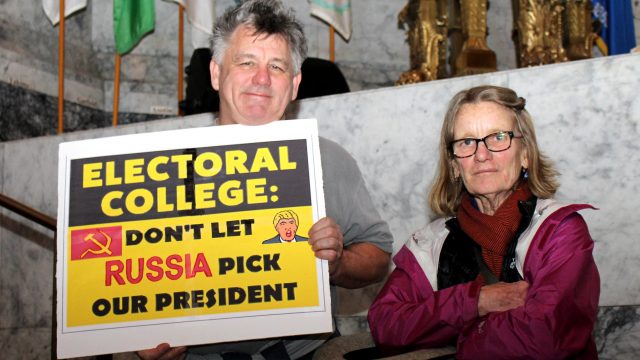As if We Needed More Evidence That the Democratic Party Doesn’t Really Like North Dakota

There’s a reason why states like North Dakota – rural states where jobs and prosperity rely in large part on agriculture and energy – have become deeply Republican in recent decades.
It’s because the modern Democratic party doesn’t seem to like our states all that much.
The party’s luminaries are downright snide when they talk we rural state denizens to their base. Barack Obama called us “bitter” people. Hillary Clinton called us “deplorables.”
Meanwhile the ascendant faction of the Democratic party – people like Rep. Alexandria Ocasio-Coretz, to name one – has taken a downright McCarthyist tone toward fossil fuel energy development. The “Green New Deal” which has had the hearts of Democrats aflutter in recent weeks would, if implemented, all but wipe out North Dakota’s economy.
[mks_pullquote align=”right” width=”300″ size=”24″ bg_color=”#ffffff” txt_color=”#000000″]You’d think top-tier Democrats, candidates for the White House in 2020, would want to find ways to reach out to rural voters to repair some of this damage. They don’t. In fact, they’re all climbing on a bandwagon to support marginalizing rural voters in national politics.[/mks_pullquote]
I’m not just talking about oil and coal and natural gas. The party’s policies are hard on production agriculture too, and have been for some time. Just ask farmers and ranchers how they felt about Obama-era policies like the Waters of the U.S. rule.
You’d think top-tier Democrats, candidates for the White House in 2020, would want to find ways to reach out to rural voters to repair some of this damage.
They don’t. In fact, they’re all climbing on a bandwagon to support marginalizing rural voters in national politics.
Becekt Adams, writing for the Washington Examiner, reports that a half dozen Democratic candidates for the White House have now gone on the record as opposing the Electoral College. The latest to do so, Senator Kirsten Gillibrand of New York, is going so far as to co-sponsor a constitutional amendment which would require that national elections be settled by the popular vote.
Currently the Electoral College assigns votes to states based on the size of their congressional delegations. Each state gets one vote for each of their members of the House of Representatives, plus two for their Senators. This results in small states like North Dakota getting an outsized presence in Electoral College votes. There were just over 344,000 votes cast in the presidential race in North Dakota in 2016, meaning each of Electoral College vote represented about 114,000 people.
In California that number is more like 712,000.
Some see that as a bug, but really it’s a feature.
The Electoral College – much like the U.S. Senate and its two-members-per-state – was designed to protect rural parts of the country like North Dakota. Without those protections the nation’s urban interests would run roughshod over the rest of us.
If you need proof of this, look at the Democratic party. They serve a base that largely lives in urban, coastal areas. At best Democrats today pay lip service to the priorities of rural Americans. If we abolish the Electoral College, what incentive would they have to pay us even that much attention?
That matters. While North Dakota may be a small state in population, our economic importance is much larger. We may have fewer than 1 million citizens, but how many millions do our farmers feed? How many millions benefit from the oil and coal and natural gas resources developed here?
I understand that bridging the gap between rural and urban voters is a tough task, but it’s depressing that Democrats would rather eschew that problem in favor of making rural voters matter less.




